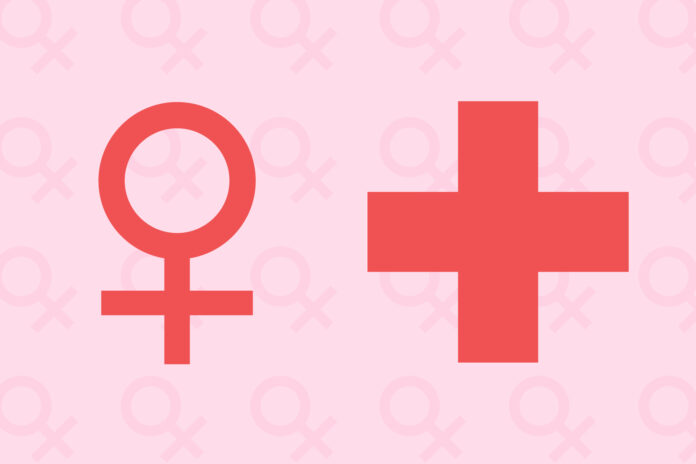“Time’s Up Healthcare” has the potential to smite the patriarchy
The Time’s Up movement is like a hashtagable, outsourced HR nonprofit endeavor. The state of affairs reached an actionable tipping point similar to that of the #MeToo movement when it finally became so apparent that Human Resources departments failed colossally in ensuring safe, equitable workplaces in the advertising, tech, entertainment and healthcare industries. Improving laws and policies and ensuring legal access to those needing recourse due to the harrowing experiences of sexual harassment and discrimination in the workplace is receiving much needed attention.
Which is great. But on principle, it seems wrong that the systemic failure to protect the wellbeing and interests of anyone who is not white, male, straight and gender-conforming in some of our greatest GDP-contributing industries is now receiving its own sweet logo and social media campaign. If the Time’s Up movement is able to achieve a safe, fair workplace better than an HR department, then let’s do it — but I get super salty when HR departments can’t be held accountable for doing their jobs. I know how to fill out a W-2.
The medical industry’s branch of Time’s Up, “Time’s Up Healthcare”, launched on March 1st. It’s no surprise that there are plenty of horrible stories about the treatment of women within the healthcare system. It makes sense that, when a group of silenced people are finally getting the privilege of a long-denied voice, their pain and anger is first to surface.
However, as a movement against the PATRIARCHY, I’m not sure we have the luxury of indulging in wide-scale catharsis, despite deserving it. There are much larger things at stake.
Are women going to be asked to sacrifice something they deserve — a public forum for grief(?) — for the greater good? Because this isn’t just about how female healthcare providers are treated — it’s about the female patients are getting treated. For example, female patients wait longer in ERs to be treated than men and women are more likely to die of a heart attack if their ER doctor is a man. As a former gender studies major, I see how framing our cause in terms of pain and anger shoots ourselves — meaning everyone — in the foot. Feminism beyond “feminism is equality for everybody!” is complex.
My point: Not all men are evil. And when entire movements forget that half the population isn’t horrible, and is, in fact, replete with good people, we are losing allies just as important and powerful as our female ones.
The fast track for improving working conditions for women in healthcare, and improving the quality of care for female patients involves making the education and recruitment of male allies — in an industry that remains male dominated and male top-heavy — of equal priority in empowering the women rising in its ranks. Female leadership is inevitable. It’s happening. We are educated. We are increasingly STEM-ing.
All too often, enabling men to be committed feminists seems to be completely ignored. Just so we’re clear, helping men embrace feminism is empowering them to be more complete human beings (see “Feminism is for Everybody” by Bell Hooks). Patriarchy hurts everyone, yet the F-word is still too often viewed as synonymous to that of man-hating. This is tragic, and until this shifts on a large scale we are all devastated, no matter how many pink pussy hats we knit.
Call me a dirty, dirty optimist, but the future of a more balanced workforce and of greater equity is there — it’s just a matter of time. Nothing is going stop it. But in the meantime, there are women dying in ERs at the hands of male doctors that could be, for lack of a better term, “systematically woke.” The men in the upper echelons of the medical industry are still going to be there for another, what, 20 to 30 years? They are the ones we need on our side — NOW. Imagine the long and many awkward conversations it would take with senior-ranking executives and doctors to conjure the kinds of consciousness shifts we need. I’m not even entirely convinced such a thing is possible, but I’d love for a ton of dedicated social workers, academics, psychologists, doctors, patients and administrators to get together and try.
It might not be fair to ask for a whole lot of women to do large-scale emotional labor on behalf of the medical industry, but I don’t care. I’m willing to help if I can. I want myself or someday my daughters, my mom, my friends, to be safe should any of us ever find ourselves in an ER waiting room.
Written by: Lauren Frausto –– lrfrausto@ucdavis.edu
Disclaimer: The views and opinions expressed by individual columnists belong to the columnists alone and do not necessarily indicate the views and opinions held by The California Aggie.




